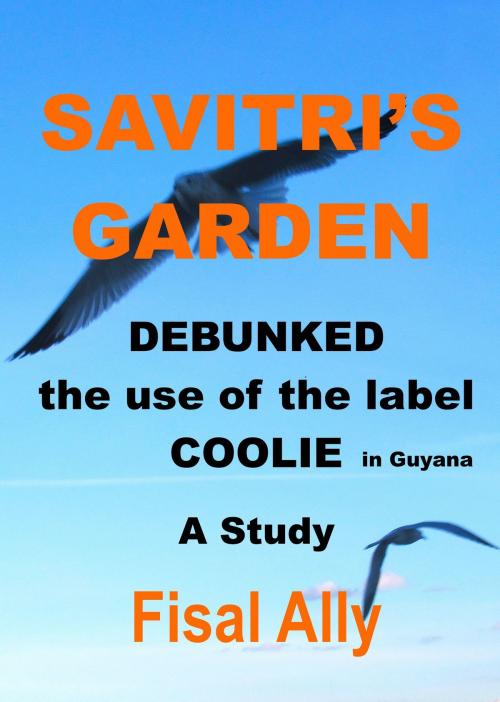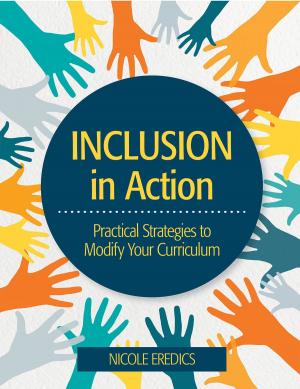Debunked The Use Of The Label Coolie In Guyana
Nonfiction, Reference & Language, Education & Teaching| Author: | Fisal Ally | ISBN: | 9781988288338 |
| Publisher: | Fisal Ally | Publication: | July 2, 2016 |
| Imprint: | Smashwords Edition | Language: | English |
| Author: | Fisal Ally |
| ISBN: | 9781988288338 |
| Publisher: | Fisal Ally |
| Publication: | July 2, 2016 |
| Imprint: | Smashwords Edition |
| Language: | English |
During my research and writing of the Trilogy of Savitri’s Garden over the past sixteen years, I came across some very important information, which I will share with you in this study guide. This information will change your perception of who the Indians were that entered British Guiana Guyana starting back on May 5, 1838. We often hear that the derogatory label “coolie” being used for Indians is a false label, but we’re not certain why. The label “coolie” in Guyana (British Guiana) stemmed from this first group of Indian laborers that left India through the Port of Kolkata, journeying across the Indian and Atlantic Oceans and into the Americas. The label had taken root in Guyana and seeded throughout the colony. Today this derogatory label is deep rooted in the Guyanese culture, from every branch and leaves throughout this beautiful garden country. This degradation must be uprooted.
In the Trilogy of Savitri’s Garden and in this study guide, I explained how this label had taken wings from India during the request for Indian laborers by the British planters, and as the ships traveled across the oceans. The label became planted in the colony and its history.
I encourage you to study this book and share this information with others, educating them on this topic. Originally, while I was writing this novel, I had just wanted to write a novel, but the novel kept evolving into a Trilogy. I spent more time researching to make the novel more realistic, which I had not initially planned for. Then the real events and real characters entered the novel. I have gained a lot of very important knowledge throughout the years, and I believe that I have debunked the use of the derogatory label “coolie” being used for the Indians in Guyana, presenting important information for readers to learn and reflect on.
The samples provided in this study guide came from the Trilogy of Savitri’s Garden, and may be modified in upcoming revisions. In this study guide, the spellings of Calcutta and Kolkata, Guiana and Guyana, and other names such as Hindustan and India are used interchangeably.
There will be some updates and corrections to this study guide. If you are interested in these updates, please send me an email, and I will place you on our email list and keep you informed. If you have any suggestions, please forward them to me.
I will be expanding my knowledge in this area by writing more on this topic. Furthermore, I will be putting on some enjoyable and knowledgeable online courses on this topic and similar topics. I hope you will join me on our journey and quest for knowledge on this subject by studying this study guide and sharing it with others. Please send me an email if you would like more information on the upcoming online courses. Hopefully you will also have an opportunity to delve into the love story presented in the novels in The Trilogy of Savitri’s Garden...Fisal Ally
During my research and writing of the Trilogy of Savitri’s Garden over the past sixteen years, I came across some very important information, which I will share with you in this study guide. This information will change your perception of who the Indians were that entered British Guiana Guyana starting back on May 5, 1838. We often hear that the derogatory label “coolie” being used for Indians is a false label, but we’re not certain why. The label “coolie” in Guyana (British Guiana) stemmed from this first group of Indian laborers that left India through the Port of Kolkata, journeying across the Indian and Atlantic Oceans and into the Americas. The label had taken root in Guyana and seeded throughout the colony. Today this derogatory label is deep rooted in the Guyanese culture, from every branch and leaves throughout this beautiful garden country. This degradation must be uprooted.
In the Trilogy of Savitri’s Garden and in this study guide, I explained how this label had taken wings from India during the request for Indian laborers by the British planters, and as the ships traveled across the oceans. The label became planted in the colony and its history.
I encourage you to study this book and share this information with others, educating them on this topic. Originally, while I was writing this novel, I had just wanted to write a novel, but the novel kept evolving into a Trilogy. I spent more time researching to make the novel more realistic, which I had not initially planned for. Then the real events and real characters entered the novel. I have gained a lot of very important knowledge throughout the years, and I believe that I have debunked the use of the derogatory label “coolie” being used for the Indians in Guyana, presenting important information for readers to learn and reflect on.
The samples provided in this study guide came from the Trilogy of Savitri’s Garden, and may be modified in upcoming revisions. In this study guide, the spellings of Calcutta and Kolkata, Guiana and Guyana, and other names such as Hindustan and India are used interchangeably.
There will be some updates and corrections to this study guide. If you are interested in these updates, please send me an email, and I will place you on our email list and keep you informed. If you have any suggestions, please forward them to me.
I will be expanding my knowledge in this area by writing more on this topic. Furthermore, I will be putting on some enjoyable and knowledgeable online courses on this topic and similar topics. I hope you will join me on our journey and quest for knowledge on this subject by studying this study guide and sharing it with others. Please send me an email if you would like more information on the upcoming online courses. Hopefully you will also have an opportunity to delve into the love story presented in the novels in The Trilogy of Savitri’s Garden...Fisal Ally















